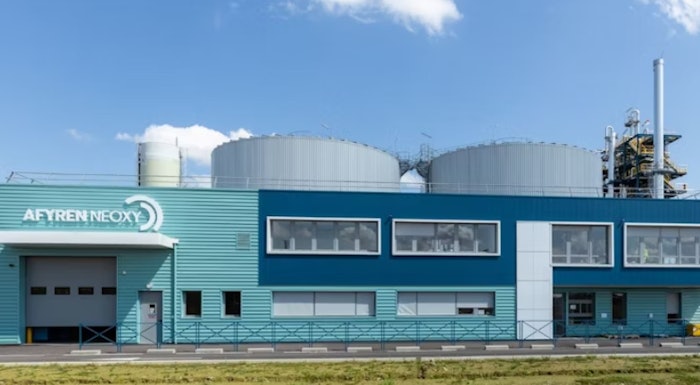
In late 2020 Afyren launched the construction of its first plant, Afyren Neoxy. Almost three years later, the company has announced significant progress in production and the delivery of the first lots of biobased organic acids. According to Afyren, this plant is the world's first for the industrial-scale production of biobased carboxylic acids from sugar beet by-products.
Related: Afyren Releases Purpose Statement and ESG Commitments
In a release the company shared that Afyren teams are "constantly working to make operations more reliable, with a view to starting continuous production in the autumn of 2023," and plans to gradually ramp up volumes to produce 16,000 tons of carboxylic acids per year at full capacity, for total annual sales (including fertilizer sales) of around €35 million. It is said that Afyren is targeting a current production EBITDA margin for this plant at full capacity of 25%. The Neoxy plant's break-even point (positive current production EBITDA margin) is still expected by the end of 2023, given current estimates for the start of production and ramp-up.
Nicolas Sordet, CEO of Afyren said, "The production and delivery of the first lots of biobased organic acids from the Afyren Neoxy plant marks an important stage in the industrial start-up of this first-of-its-kind plant. These significant achievements are the fruit of the highly motivated Afyren and Afyren Neoxy teams, whose commitment I salute. I would also like to thank our customers for their unfailing support for our innovative project. We will now continue to ramp up our production to meet the expectations of our customers. Faced with growing demand from manufacturers for rapidly available biobased alternatives, we are working in parallel to increase our production capacity, particularly internationally. More than ever, we are motivated to make a low-carbon and circular industry possible by providing biobased solutions built with our partners to benefit the environment.”










